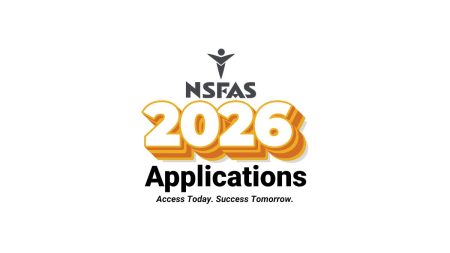The National Student Financial Aid Scheme (NSFAS) is a beacon of hope for many South African students from households with a combined annual income of R350,000 or less. It not only covers tuition fees but also provides allowances for living expenses, transportation, and learning materials. Despite its critical role, numerous applicants face rejection each year, often due to avoidable mistakes.
This article delves into the common reasons behind these rejections and offers guidance on how to enhance your NSFAS application’s success rate.
Common Reasons for NSFAS Application Rejection
1. Incomplete Applications:
Incomplete applications are a significant hurdle in the process of NSFAS Applications. When an application form is filled out incompletely, missing crucial information or necessary documents, it can stop the review process in its tracks.
Common Pitfalls to Avoid
- Personal Information Section: Often, applicants miss out on filling in details like contact information, addresses, or identification numbers. Ensure every field is checked and accurately filled.
- Signatures and Declarations: Some applications require a signature, either digital or handwritten, to validate the information provided. Missing this step can render your NSFAS application incomplete.
Tips for Submitting a Complete Application
- Read Instructions Carefully: Before you start filling out the NSFAS application, read all instructions and requirements. Understanding what is expected can save you from overlooking essential sections.
- Prepare Documents in Advance: Gather all necessary documents before beginning the application process. Having everything on hand makes it easier to attach the required files without missing any.
- Review Before Submission: Always review your NSFAS application multiple times before submitting it. Check for any unfilled sections, typos, or missing attachments.
- Follow Up: After submitting your NSFAS application, if possible, follow up with the organization to ensure your application was received and is complete. Some systems may not correctly upload attachments, so it’s worth confirming.
2. Incorrect Information:
Incorrect information in NSFAS applications can be a major stumbling block. This scheme provides financial assistance to students from low- and middle-income families to help cover the costs of tertiary education. Given its importance, it’s crucial that all information submitted is accurate and truthful.
Types of Incorrect Information That Lead to Rejection
- Personal Identification Details: Errors in personal details such as your ID number, date of birth, or name spelling can cause your application to be flagged. These details must match exactly with those on your official identity documents.
- Contact Information: Providing an incorrect email address, phone number, or home address may mean you miss out on crucial communication regarding your application.
- Financial Information: Inaccurate reporting of income or household financial details can not only lead to rejection but also potential legal ramifications.
- Academic Records: Submitting incorrect academic information, whether mistakenly or intentionally, is a serious offense that can disqualify you from receiving aid.
Consequences of Submitting Incorrect Information
- Automatic Rejection: NSFAS has automated systems to verify much of the information provided. Mismatches can lead to immediate disqualification.
- Delayed Processing: If discrepancies need to be manually checked, your application could be delayed, affecting your ability to start your studies on time.
- Legal Consequences: Intentionally submitting false information is fraudulent and could lead to legal action beyond just application rejection.
How to Ensure Your Information is Correct
- Double-Check Before Submission: Always review your NSFAS application multiple times. Check each detail against your official documents to ensure accuracy.
- Update Your Details: If any of your personal information changes after you have submitted your application, update NSFAS immediately to prevent issues.
- Seek Help if Uncertain: If you are unsure about any information requested, it’s better to seek clarification from NSFAS directly or through your educational institution.
The accuracy of the information you submit in your NSFAS application cannot be taken lightly. Incorrect details, whether minor or major, can have significant repercussions, from application delays to outright rejection. The importance of thoroughness and honesty in filling out these forms cannot be overstressed. Ensuring that all your information is correct not only aids in a smoother application process but also demonstrates your integrity as an applicant. By taking the necessary steps to verify your details and seeking help when needed, you can avoid the pitfalls of incorrect information and move one step closer to securing your financial aid for education.
3. Household Income Exceeds the Threshold:
NSFAS is designed for applicants from households with a combined annual income of R350,000 or less. Applications above this threshold are rejected.
NSFAS’s mandate is to assist those in financial need by providing funding for higher education. The income threshold is a crucial criterion used to determine eligibility. It ensures that the scheme targets and benefits the intended demographic—students from households that cannot afford higher education without financial assistance. Applications that report a household income exceeding the R350,000 limit are automatically deemed ineligible for funding because they fall outside the intended beneficiary group.
The Impact of Exceeding the Income Threshold
When an application is rejected due to household income surpassing the threshold, it underscores the government’s focus on redistributive justice and equitable access to education. However, it also highlights the challenges faced by families that are marginally above the threshold yet still struggle to afford higher education costs. This situation creates a gap where a segment of the population might not qualify for NSFAS funding but also does not easily afford higher education, often referred to as the “missing middle.”
Ensuring Compliance with Income Requirements
- Accurate Reporting: It’s important to accurately report all sources of household income. This includes wages, salaries, pensions, investments, and any other income. Under-reporting can lead to fraud charges, while over-reporting may disqualify eligible applicants.
- Documentation: Provide all required documents that verify household income. These may include pay stubs, tax returns, and other financial documents. Proper documentation helps in the transparent and efficient processing of your application.
- Review Guidelines: NSFAS periodically updates its eligibility criteria and income thresholds. Stay informed about any changes to ensure your application complies with the current guidelines.
- Alternative Funding: For those slightly above the threshold, it’s advisable to look into alternative funding options. Scholarships, bursaries, and loans from other sources can offer the necessary financial support for higher education.
The household income threshold is a fundamental eligibility criterion for NSFAS funding, aimed at directing resources to those most in need. Understanding and adhering to this requirement is crucial for applicants. For those above the threshold, exploring other financial aid avenues can provide alternative solutions for funding higher education. By maintaining the focus on equitable access to education, NSFAS continues to be a cornerstone of support for South African students from financially disadvantaged backgrounds.
4. Failure to Provide Supporting Documents:
Required documents, such as ID copies, proof of income, and academic records, must be current and clearly legible.
Importance of Submitting Required Documents
Supporting documents serve as the backbone of your NSFAS application. They are essential for verifying the information you provide, assessing your financial need, and determining your eligibility. Without these documents, the NSFAS cannot accurately evaluate your application, leading to a likely rejection.
Common Mistakes to Avoid
- Outdated Information: Submitting documents that are outdated, such as expired ID documents or old academic records, can hinder your application’s progress.
- Illegibility: Blurred or faint copies of documents can make it impossible for the evaluators to verify the information, leading to automatic disqualification.
- Incomplete Submissions: Missing one or more required documents is a common oversight that can delay or derail your application.
- Incorrect Documentation: Submitting the wrong documents, such as providing a bank statement instead of a payslip for proof of income, can cause confusion and lead to rejection.
Tips for Ensuring Documentation Compliance
- Checklist Before Submission: Create a checklist of all required documents according to the NSFAS requirements. Tick off each document as you gather them to ensure completeness.
- Clear Copies: Make sure that all photocopies are clear and legible. It is advisable to use a good quality scanner or photocopier.
- Current Information: Ensure that all documents are up-to-date. For instance, use the most recent academic records and the latest month’s proof of income.
- Follow Submission Guidelines: Adhere strictly to the NSFAS submission guidelines. This includes how documents should be submitted (e.g., online upload, email, or physical submission) and the formats accepted (PDF, JPG, etc.).
- Double-Check Before Sending: Before submitting your application, go through all the documents again to ensure they are complete, clear, and correct.
- Keep Copies: Always keep copies of the documents you submit. In case of any disputes or requests for resubmission, you’ll have the required documents at hand.
Ensuring that your NSFAS application includes all the necessary supporting documents is crucial for a successful application process. These documents are vital for verifying your identity, academic eligibility, and financial need. By avoiding common pitfalls and following the provided tips, you can significantly improve your chances of having your application accepted. Remember, the effort and attention to detail you put into preparing your application and supporting documents reflect your commitment to securing financial aid for your studies.
Read More: NSFAS Supporting Documents Checklist for 2024
5. Academic Performance:
NSFAS has academic requirements. Poor academic performance or not meeting the progression requirements can result in rejection.
The Role of Academic Performance in NSFAS Applications
NSFAS sets academic criteria that applicants must meet to be considered for funding. These criteria are in place to ensure that funds are allocated to students who are committed to their studies and have a reasonable chance of completing their qualifications. For continuing students, NSFAS evaluates academic progress annually to decide on the renewal of funding. Failing to meet the minimum academic requirements can result in the termination of financial support.
Common Academic-Related Issues Leading to Rejection
- Not Meeting Minimum Academic Performance: Each institution has its minimum academic requirements, which may include passing a certain number of modules per year. Failing to meet these can result in NSFAS rejecting your application.
- Lack of Academic Progression: Progressing from one academic year to the next is a key requirement. Repeating the same academic level without valid reasons may affect your eligibility.
- Insufficient Course Load: Part-time students or those not enrolled in a minimum number of courses might not meet the NSFAS eligibility criteria, leading to application rejection.
Strategies to Enhance Academic Performance
- Effective Study Habits: Develop and maintain good study habits. This can include setting a regular study schedule, joining study groups, and making use of campus resources like tutoring services.
- Seek Help Early: If you’re struggling with your courses, seek help as soon as possible. Many educational institutions offer counseling, tutoring, and academic support services.
- Time Management: Balancing your studies, part-time work (if any), and personal life is crucial. Effective time management can help you allocate sufficient time to your studies.
- Stay Informed: Keep yourself informed about the academic requirements of your institution and NSFAS. Understanding these requirements can help you plan your academic path to ensure compliance.
- Regularly Consult Academic Advisors: Academic advisors can offer valuable guidance on course selection, academic strategies, and meeting graduation requirements. Regular consultations can help you stay on track.
Meeting NSFAS’s academic requirements is crucial for both securing and maintaining financial aid. While NSFAS provides a lifeline for students from financially disadvantaged backgrounds, it also emphasizes the importance of academic responsibility. By understanding the academic standards required by NSFAS and employing strategies to maintain or improve academic performance, students can enhance their chances of not only securing funding but also successfully completing their studies.
6. Applying for Non-Covered Institutions or Courses:
NSFAS covers courses at public universities and TVET colleges in South Africa. Applications for private institutions or unapproved courses are not eligible.
NSFAS aims to broaden access to higher education by removing financial barriers for students who wish to pursue qualifications at public universities and TVET colleges. This focus on public institutions is part of a broader strategy to invest in sectors deemed critical to the country’s development. By limiting funding to approved institutions and courses, NSFAS ensures that its resources are allocated to programs that align with national educational and economic objectives.
Common Mistakes Leading to Rejection
- Applying for Private Institutions: Despite the allure of certain private institutions, NSFAS does not cover courses offered by private colleges or universities. Applications for these institutions will not be considered.
- Enrolling in Unapproved Courses: Not all courses offered by public institutions are covered by NSFAS. Some specialized or postgraduate programs may not be eligible for funding.
- Misunderstanding Coverage: Some applicants may assume that any course at a public university or TVET college is eligible for funding. This misunderstanding can lead to applying for courses that are not covered by NSFAS.
How to Ensure Your Course and Institution are Covered by NSFAS
- Research Before Applying: Before applying for NSFAS funding, research thoroughly to ensure that your chosen institution and course are NSFAS-approved. Information is readily available on the NSFAS website and the websites of public universities and TVET colleges.
- Consult NSFAS Guidelines: NSFAS provides detailed guidelines and lists of covered institutions and courses. Review these documents carefully to avoid applying for non-covered programs.
- Seek Advice: If you are unsure about the eligibility of your course or institution, seek advice from the financial aid offices of the respective institutions or directly from NSFAS.
- Plan B: Have a backup plan in case your first choice of course or institution is not covered by NSFAS. Explore other scholarships, bursaries, or financial aid options available for the courses or institutions you are interested in.
Applying for NSFAS funding requires careful consideration and planning to ensure that your chosen course and institution are covered. Understanding the criteria set by NSFAS for eligible institutions and courses is crucial to avoid the disappointment of rejection. By focusing on NSFAS-approved options and utilizing the resources and guidance available, students can navigate the application process more effectively, ensuring they make informed decisions about their higher education pathways.
Read More: List of Key Courses Funded by NSFAS
How to Avoid NSFAS Application Rejections
Ensure Completeness and Accuracy: Double-check your application for completeness and accuracy. Ensure that all required fields are filled out and that the information provided is correct.
Understand the Income Threshold: Be aware of the income threshold and ensure your household income does not exceed the limit. Provide accurate financial information to avoid disqualification.
Prepare and Organize Supporting Documents: Gather all necessary documents in advance. Ensure they are clear, legible, and within the validity period required by NSFAS.
Monitor Academic Performance: Maintain good academic standing and meet all progression requirements to enhance your eligibility.
Choose Eligible Institutions and Courses: Apply only for programs and institutions covered by NSFAS to avoid unnecessary rejections.
Apply Early: Submit your application as early as possible. This gives you ample time to correct any errors and avoid the last-minute rush.
Use the NSFAS Checklist: Refer to the NSFAS checklist to ensure you meet all application criteria and requirements.
Related: Cannot Submit an NSFAS Appeal? Here’s 4 Reasons Why
NSFAS plays an indispensable role in making higher education accessible for South African students from low-income families. While the application process may seem overwhelming, understanding the common pitfalls and how to avoid them can significantly increase your chances of acceptance. By following the guidelines outlined in this article, prospective students can navigate the application process more effectively, moving one step closer to achieving their educational aspirations.










